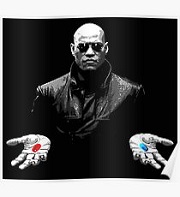https://www.proactiveinvestors.com/news/details/21
Post# of 157871

CytoDyn presses forward with HIV treatment after Phase 3 trial
Leronlimab, according to the company, is an antiviral agent candidate with fewer side effects, lower toxicity and less frequent doses than daily HIV therapies now in use
A double helix and a medical person
OVERVIEW: CYDY The Big Picture
The antibody targets CCR5, the entry point for most HIV strains:
CytoDyn’s main product candidate is leronlimab, an injectable antibody that shows promise as an anti-viral agent with fewer side effects, lower toxicity and less frequent doses than daily therapies now in use for the treatment of HIV
Since Nader Pourhassan became CEO at the end of 2012, CytoDyn’s work on leronlimab as a therapy for HIV has proceeded from Phase 2 to the conclusion of a Phase 3 trial
Preclinical studies conducted by Richard Pestell, CytoDyn’s chief medical officer, show that CCR5 inhibitors blocked prostate cancer metastasis to the bones and brains of mice with competent immune systems and blocked the spread of breast cancer to the lungs, according to the company
In March, CytoDyn said the FDA reviewed and accepted the company’s plan to submit on a rolling basis its planned biologics license application for leronlimab.
All told, CytoDyn has raised $200 million, according to Pourhassan.
What does CytoDyn do?
CytoDyn is working to develop a significant advance in HIV treatment beyond the “AIDS cocktail” combination of pills that has kept millions of people alive since the mid-1990s.
At the helm of the company is Nader Pourhassan, who immigrated to the US from Iran as a teenager in 1977, two years before revolutionaries deposed the Shah. He holds a Ph.D. in mechanical engineering from the University of Utah. For 20 years, he managed his family business as well as authoring three books.
What does CytoDyn own?
The company’s main product candidate is leronlimab, an injectable antibody that shows promise as an antiviral agent with fewer side effects, lower toxicity and less frequent doses than daily therapies now in use for the treatment of HIV. The target of leronlimab is CCR5, a cell receptor that is the entry point for most strains of the human immunodeficiency virus (HIV), which causes acquired immune deficiency syndrome (AIDS). The company agreed in 2012 to acquire leronlimab from its developer, Progenics Pharmaceuticals Inc (NASDAQ
Vancouver, Washington-based CytoDyn is exploring leronlimab's use in the treatment of cancer, inflammatory conditions and autoimmune diseases.
Inflection points
Since Pourhassan became CEO at the end of 2012, CytoDyn’s work on leronlimab as a therapy for HIV has proceeded from Phase 2 to the conclusion of a Phase 3 trial that could lead to commercial use.
In November, the company completed its $15.4 million stock acquisition of privately held ProstaGene LLC, whose CEO, Richard Pestell, an oncologist, became CytoDyn’s chief medical officer and vice chairman. Pestell has published 500 published papers in peer-reviewed journals and controls the patents to Merck & Co Inc (NYSE:MRK ) and Pfizer Inc (NYSE
Preclinical studies conducted by Pestell, according to CytoDyn, show that CCR5 inhibitors blocked prostate cancer metastasis to the bones and brains of mice with competent immune systems and halted the spread of breast cancer to the lungs.
Until Cytodyn can generate significant revenue, the company is financing its cash needs primarily through public or private equity offerings, debt financings and strategic alliances. All told, the company has raised $200 million, according to Pourhassan.
In March, CytoDyn said the FDA reviewed and accepted the company’s request and plan to submit on a rolling basis its planned biologics license application (BLA) for leronlimab.
 (0)
(0) (0)
(0)